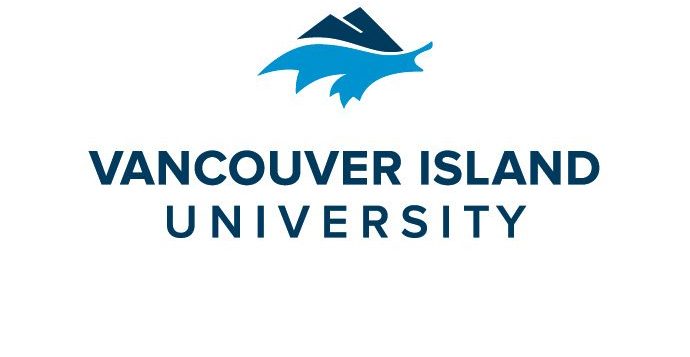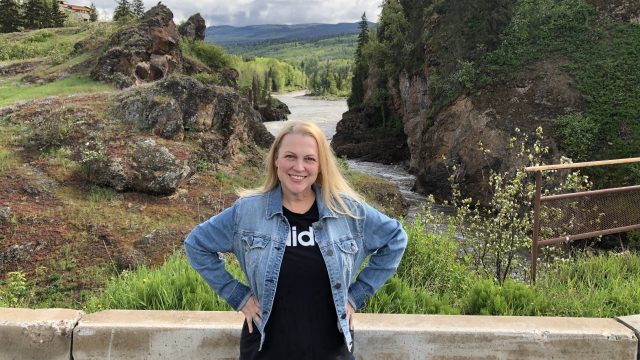As a future administrator and alternative educator for over 24 years, I wondered what successful alternative administrators do to best support their staff and students. This curiosity led me to begin a comprehensive search for inspirational alternative Southern Vancouver Island administrators. In May 2020, I received ethical approval from the REB to conduct semi-structured qualitative interviews with six to twelve of the most extraordinary leaders I could find. Participants had to have been in their position in the last five years and be willing to share their personal stories, lessons learned, hopes for the future, and any other wisdom they thought new administrators like myself should know. My research study, therefore, qualitatively looks into what Vancouver Island alternative education administrators, from 2015-2020, learned, experienced, and consider to be effective leadership practice in alternative schools. In the end, I was fortunate to find eight remarkable alternative administrators, including past and present principals, vice-principals, and assistant superintendents, that agreed to meet with me over Zoom. Their professionalism, passion, excitement and sometimes tears, as we explored their leadership experiences and strategies with trauma and burnout, have been emotional and powerful.
Preliminary analysis indicates that themes and commonalities in their experiences and stories are emerging. I believe what is learned from these leaders will significantly contribute to the academic conversation around alternative school leadership in BC. The data could potentially provide powerful Southern Vancouver Island leadership strategies and practices, which may help to improve alternative education experiences for teachers and students both here and beyond.
Please ask me anything! Do you want to know why I picked semi-structured interviews, the qualitative method, how I received permission to do the research in the two districts that approved me, or how to get going on the Ethics Review Board process? How about how to get help with the library, access to old thesis, finding writing support for your papers, navigating Zoom, COVID issues, or what software to use for analysis? I’m here to help, so please do not hesitate to ask.


Hi Lisa. This is an interesting topic. What are some of the themes and commonalities that are emerging in your research? Do you think that different leadership skills are needed for working in an alternative environment as opposed to a typical brick and mortar school? Best wishes with your research.
Hello Melissa,
Thank you for your interest! At this point in my research, I have finished the semi-structured qualitative interviews, transcribed the audio recording, and sent them back to the participants for member checking. My hope is that I’ll have permission to begin coding within the next week and a half. With that said, there are already themes and commonalities emerging.
To date, most administrators have expressed that they combine servant, distributed, and authentic leadership in their practice. A surprise was the inclusion of compassionate leadership, a theory I was not familiar with. At the beginning of my research, I wondered if alternative administrators needed a different skill set for leadership than traditional schools. The answer to this is yes and no. I am still working this out.
Other commonalities/themes included the practice of mindfulness and daily exercise, along with having key colleagues/friendships, reflective journaling, and participating in counselling. These practices helped them to stay in balance. As far as supporting staff, they said that they made sure they connected with everyone daily in a meaningful way, had an open door policy, proactively built and nurtured trust and relationship, and approached issues with curiosity, authenticity, and servitude. They walk the talk, so to speak. They all hoped to work themselves out of a job but believed that the supports were not in place to make that happen yet. Their honesty, vulnerability, and stories they shared during the interviews were compelling and inspirational. I can’t wait to see what else comes to the surface.
Hi Lisa, I’m curious why you chose semi-structured interviews and did you record the interviews through Zoom to analyze later? Did you use any other types of data collection? Thank you!
Hello Janice,
Thank you for your question! I chose semi-structured interviews because I wanted my participants to have the flexibility to have and reflect on the questions in advance. It was my hope that this would facilitate more honest, meaningful, and reflective responses. I also wanted to have the ability to go outside of the set questions, if the participants wanted to go in a different direction. Because they would be sharing stories from their personal experience, if there was something they were passionate about, for example, I didn’t want to immediately have to redirect them or not use the data in the research.
I recorded the interviews through Zoom and used the NVivo transcription service. I was grateful I did this, as I could engage on a deeper level with the participants than may have occurred taking notes. The interviews were each around two hours long, so transcribing the recordings on my own would have been incredibly time consuming. As it was, I still needed to go through the transcripts and delete repeated words, remove identifiers, etc. Once that was finished, as promised to the participants, they were sent the transcripts for member checking. This gives them full control over what data is used for the study. For example, if they wanted to change their answers, delete one or more, pull out of the study completely, add further information, they were in full control to do that. Once they send it back to me, hopefully this week, it becomes unchangeable for either of us. I’ll then move forward and use NVivo to code for themes. The only other type of data collection was email responses. Two of the participants chose to email me their answers through Gmail instead of meeting on Zoom. If you have any further questions, please do not hesitate to ask! I’m here to help.
Hello Lisa,
Thank-You for sharing your research thus far. I was wondering what qualitative method you were doing to use, from the parameters you mentioned this sounds like an awesome narrative inquiry. I am intrigued to know how/if the participants backgrounds impacted the type of leadership they described in their interviews? In addition, I see in your response to Janice, that two of your participants decided to e-mail in their responses. Did you notice a discrepancy in the two different methods? I reflect on personal experience and my thoughts immediately think that a written response would not provide as much depth as an oral conversation.
Thank-You,
Monique
Hi Monique! Thank you for your questions. I am using the phenomenological qualitative method. This method is useful to explain how and why alternative administrators act and believe the way they do to support themselves, as well as their alternative staff and students. It has been exciting listening to the participants’ stories and reflections on what has worked, not worked, with whom they walked this particular journey, and what they hope for in the future. With this method, I have conducted eight semi-structured interviews with some of the most admirable and professionally experienced alternative administrators on Southern Vancouver Island. Along with the interviews, I informally visited the sites where their magic happen(s)(ed). Due to COVID, I could not go in or interact in person with anyone, but just being present and observing from afar helped me to gain perspective. All in all, it helped me to better understand the meaning participants put on their experiences at their schools, where their stories came from, like the building structures, and the potential influence of the surrounding community. With all of this, I am building a sufficient dataset to sift through.
Thus far, I would say that the participants’ background significantly impacted how they first approached their administrative role in this environment. I would have to say, however, that their leadership style evolved fairly quickly, due to the often volatile and traumatic events that can occur in the alternative environment. These exemplary administrators adjusted to meet their staff and students’ needs, meeting them where they were at, and found the best way to give everyone, including themselves, the professional leadership needed in this particular environment. For example, they may have began with a Servant Leadership lens, but quickly mixed it up with Authentic, Distributed, Transformational, and Compassionate Leadership, forming a mosaic of the best of each perspective to help all involved to thrive.
Two of the participants chose to answer the interview questions by Gmail instead of Zoom. I believe it did impact the depth that we may have been able to get to in an oral conversation. With this said, participants in these type of emotional interviews are very vulnerable and in danger of being retraumatized in the process. My questions, in which every participant was able to review before letting me know how they were going to respond, asked for some honest and complicated responses. I respect their choice and am grateful for the wisdom they were able to share in their own way.
During the Ask Me Anything session tomorrow, I hope to be able to address how important the REB process was for me and how critical it was in the protection of my participants. I have learned quite a bit through this process.
Lisa
Hi Lisa,
This sounds very interesting. I can’t wait to hear more about your findings. Has it been difficult analyzing qualitative data for your thesis? What tips and tricks have you found to help with this? Also, do you think the leadership perspectives you have learned about from those you’ve interviewed will translate to other venues, such as other school environments and even post-secondary institutions? Thanks for sharing! – Zoe